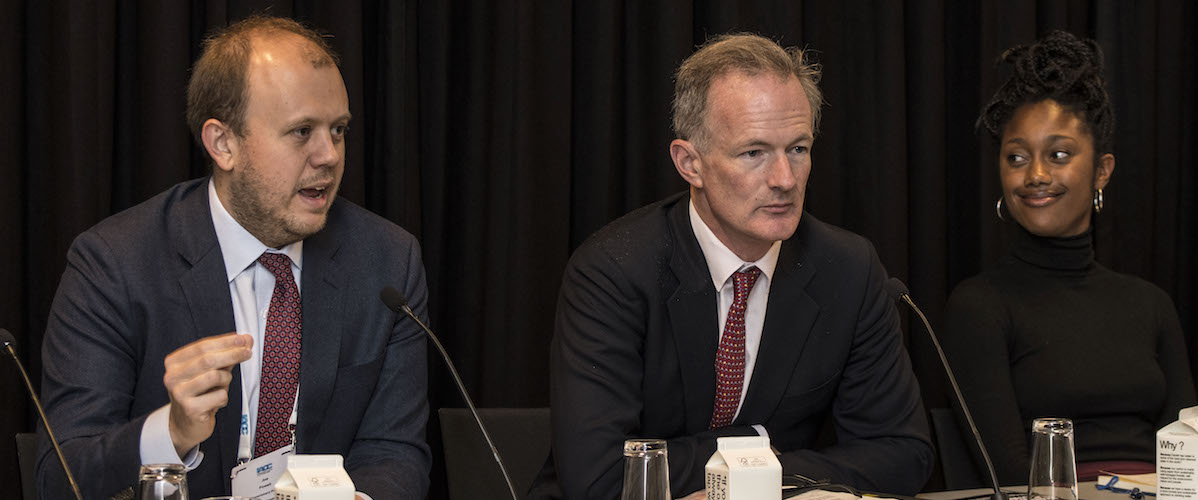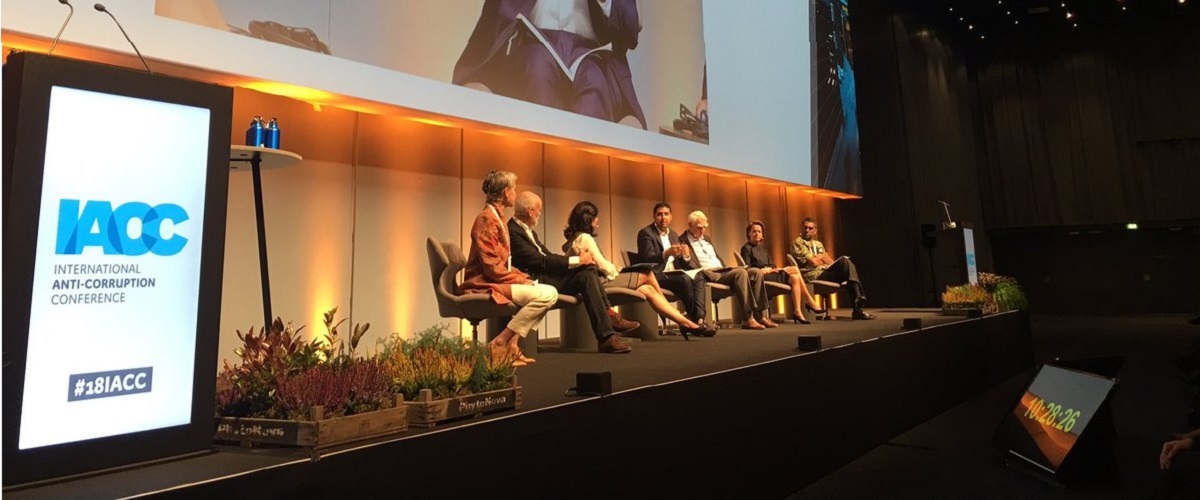
The panel moderator, Joe Powell, deputy chief executive officer of Open Government Partnership Support Unit, saved his first question for the audience. He asked: How many people have attended an anti-corruption conference and felt there were no concrete actions to address the commitments made?
Only a handful of hands shot up.
Powell was moderating a discussion on the topic “Gone but not forgotten: Beyond the legacy of Anti-Corruption Summit”.
John Penrose, a British anti-corruption champion opened the panel discussion, where he noted that the UK had not gone to sleep after the 2016 Anti-Corruption Summit.
He stated that the best way to track the commitments made by a country was to reduce them into action points, adding that the UK government had made 133 anti-corruption action points, which would be implemented in a five-year period.
Penrose remarked that there was the urgent need to hasten the fight against corruption in both actions and legislation.
“The world does not stand still. The threat of corruption does not stand still,” he said.
The Minister of Works of Afghanistan, Yama Yari, went beyond action points. Beginning his submission with a subtle reference to a former UK prime minister’s assertion that Afghanistan and Nigeria were “fantastically corrupt”, he listed a number of steps his country has taken to put into action the commitments made in London two years ago.
He explained that one of the commitments was to create the Justice and Anti-Corruption Commission, which he says has yielded a lot of results, stating that the establishment of the commission has led to a renewed fight against graft in that country.
He announced that within two years, about 350 cases have been reported to the commission out of which 92 cases had been dealt with.
Yari said the prosecution resulted in the jailing of over 100 ministers, deputy ministers, heads of boards and state corporations and other high public office holders, and announced that the country had also taken steps to retrieve about $65 million from corrupt persons involved.
“It is unheard of in the region, to have ministers or deputy ministers going to jail for corruption,” he noted.
He added that Afghanistan has passed a number of laws to aid the fight against corruption as part of the nation’s commitments at the London Summit in 2016.
Some of them, he said, were the Anti-Money Laundering Law, Access to Information Law, Assets Registration Law and an electronic system for the recruitment of civil servants among other steps.
He announced that the various steps aimed at ensuring transparency has led to the removal of “thousands of ghost soldiers from the payroll of the governments.”
For her part, Jameela Raymonds of Transparency International UK, was of the view that anti-corruption conferences would not yield the needed results unless monitoring and tracking of the commitments made by participating states were strengthened.
“If we are not watching, the work won’t get done,” she said.
Participants in the interactive session called for stronger collaboration between organisers of the anti-corruption forums to partner with civil society to put pressure on governments to implement commitments and accountability in their countries.
Sharing a country’s perspective on the fight against corruption, a panellist from South Africa’s Corruption Watch, Kavisha Pillay, said the post-Jacob Zuma era has witnessed what appears to be actions against corruption — but feared sustainability might be hampered due to the mentality by some people that, with the now-former president out, corruption would disappear.
Nazar Ahmad Shah of the Danish Foreign Affairs Ministry, who oversees Denmark’s development programmes in Afghanistan, said the current government in Afghanistan was more committed to fighting corruption than the previous one. He said one way of compelling countries to act was to put pressure on and sanction governments that show no commitment to fighting corruption.
The session stressed the need for politicians to be made accountable to deliver on their promises and commitments; strengthened networks among agencies of government and civil societies; as well as the need for systematic approach to achieve the objectives set by countries, in order to achieve results from anti-corruption summits.
To achieve lasting results from anti-corruption summits, Powell said, there was a need for trackable commitments, grounding of international conversations in country implementation plans, as well bringing heads of states who have made commitments to Open Government Partnership together, and to discuss how much progress they have made in regards to implementation.

